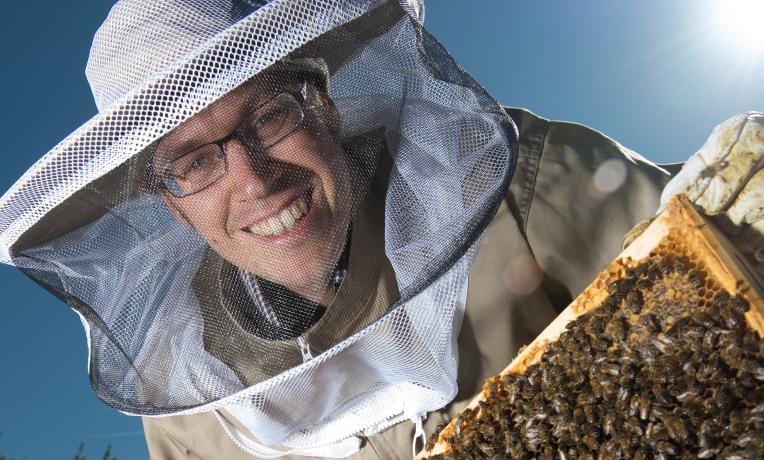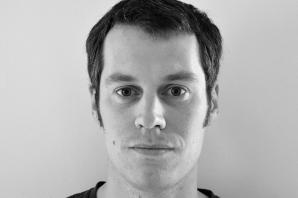Honey bees – what’s in their guts?
Honey bees are an important species for ecology and economy, but their population has shrank worryingly. Prof. Philipp Engel focuses on gut microbiota, a critical factor for bee health, to understand how it evolved and diversified over time. His study addresses timely questions about evolution, ecology, microbiology and could eventually contribute to new strategies for managing bee colonies’ health.

Research on animals’ gut microbiota is one of the hottest topics in current biology. The gut harbour a great diversity of microorganisms that during millions of years have evolved and adapted and that have become essential for the animal’s health. Despite its relevance, very little is known about early bacteria evolution and diversification in animals’ guts.
The relatively simple and easy-to-manipulate microbiome of honey bees could help shed some light on this issue. Bees are surprisingly similar to humans when it comes to their gut microbiome: both communities have their origin in only a few bacterial founders. However, those of mammals has evolved into complex and astoundingly diverse groups, while bacterial communities in bees’ gut are much simpler and, therefore, easier to study. Bees’ guts harbour specialized bacterial communities dominated by only eight different species. Therefore, honey bee microbiota is an excellent model that provides unique opportunities to study bacterial evolution in the gut. To this purpose, Prof. Engel and his team apply a truly multidisciplinary approach, using cutting-edge genetic techniques.
The results of this project will provide insights into microbial evolution, identifying causes and consequences of gut bacterial diversification and will reveal the genes and strategies that allow bacteria to interact with each other and with the host, advancing our understanding of how bacteria influence bee health, behaviour and biology. For example, finding that the gut microbiota influences the behaviour of bees could lead to the establishment of the honey bee as a novel model to investigate the gut-brain axis, i.e. how the gut microbiota communicates with the nervous system. The research will also be relevant from an applied point of view, because honey bees are pollinators of important ecological and economic value, whose numbers have declined over the years.
Biography
Philipp Engel carried out his doctoral research at the Biozentrum in Basel (Switzerland). Then he moved to Yale University (USA) to work on various aspects of the gut microbiota of honey bees. In 2014 he came back to Switzerland where he started his independent research group at the University of Lausanne, continuing his work on the bee gut microbiota.






